Premium Only Content
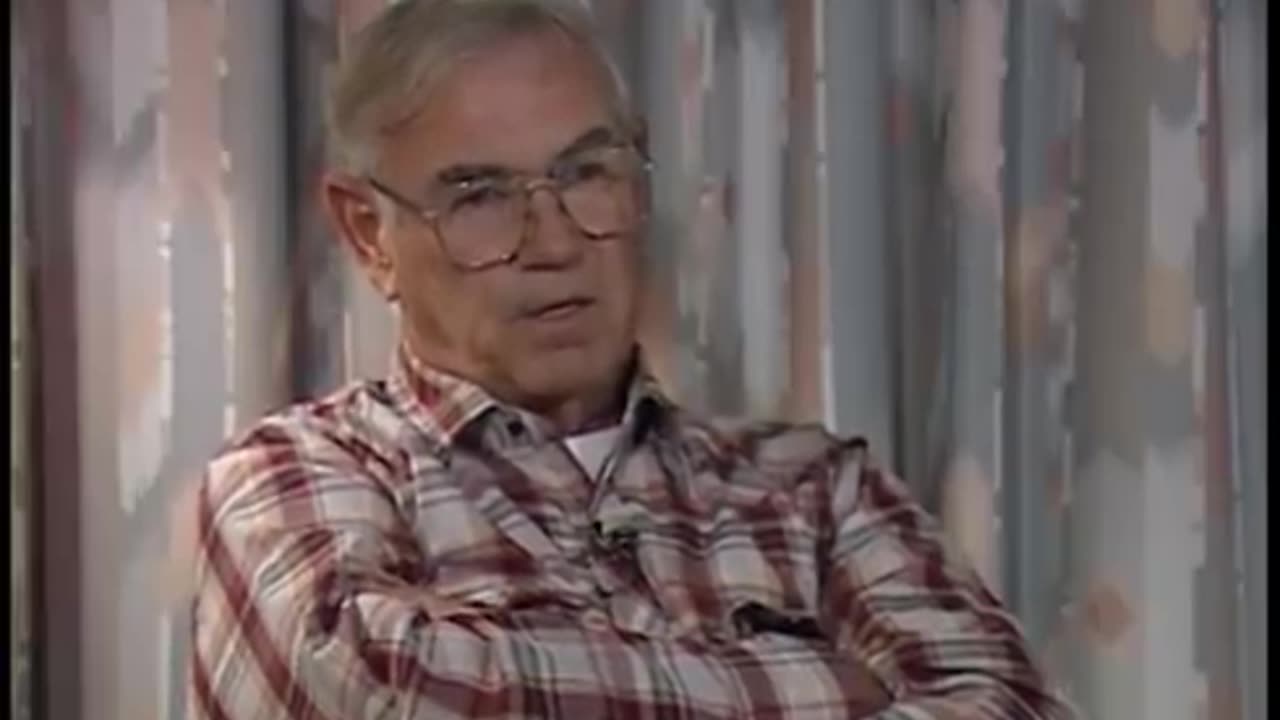
W. Glenn Dennis – “What is the Smallest Possible Casket we can Get?” – ROSWELL UFO Crash – 1947
Interview on 11-19-1990: The interview was for Omni with writer and UFO researcher Karl T. Pflock, who is a former deputy assistant secretary of defense and intelligence officer.
Glenn received a telephone call from the Mortuary Officer out at the Walker Army Airfield Base and he inquired about a casket, he said "what is smallest possible casket that we can get that can be airtight sealed?"
Dennis was settling into his life as a "country funeral director" when, during the first week of July 1947, cowboy William W. ("Mac") Brazel moseyed into the Roswell office of Chaves County Sheriff George Wilcox. He announced he had found a large amount of unusual debris on the ranch he managed about 75 miles northwest of town.
The sheriff contacted authorities at Roswell AAF, and by noon of Tuesday, July 8, the base public relations department had rolled into high gear: The U.S. Army Air Force had recovered one of the mysterious "flying discs," the press release declared. The implication, bandied about in headlines around the world, was that military officers had recovered an extraterrestrial vehicle, "a flying saucer," to be exact. But hours later, at his Fort Worth, Texas, headquarters, Eighth Air Force commander Brigadier General Roger M. Ramey deflated the excitement: The alleged saucer was nothing more than the misidentified remains of a weather balloon and its radar target.
Here is the Interview Transcript to this Interview:
Omni: How did you first become involved in the events now known as the Roswell incident?
Dennis: I received a phone call from the Roswell Army Air Field mortuary officer on July 7 sometime after lunch, around one-thirty. I have no idea who it was, but he asked if we had any baby caskets, three foot six or four foot, hermetically sealed. I told him we kept a four foot. Then he asked how many we had in stock. I told him we had two, He asked how long it would take to get more. I told him, if we called Texas Coffin Company in Amarillo by three o'clock, we could have them by Hill Truck Line at six the next Morning.
Omni: Did he tell you how many he wanted?
Dennis: No. I just said, "Hey, what's going on?" And he said, "We're just having a conference here about the future. In case something happens, we may need a lot of them."
Omni: Did the call seem unusual to you?
Dennis: No, I didn't think anything about it until later. We got that kind of inquiry all the time.
Omni: But then you got another call.
Dennis: About forty-five minutes later the same man called back. He wanted to know about embalming fluid: what chemicals it contained, what it would do to bodies that had been lying out in the open. Would it change the stomach contents? Would it change the tissue, the blood? He also wanted to know about our-procedures for removing bodies from a site and for preparation of bodies that had been lying out in the elements and might have been shredded by predators.
Omni: Did he say they had bodies in that condition?Interview on 11-19-1990: interview for Omni with writer and UFO researcher Karl T. Pflock, who is a former deputy assistant secretary of defense and intelligence officer.
Glenn received a telephone call from the Mortuary Officer out at the Walker Army Airfield Base and he inquired about a casket, he said "what is smallest possible casket that we can get that can be airtight sealed?"
Omni: How did you first become involved in the events now known as the Roswell incident?
Dennis: I received a phone call from the Roswell Army Air Field mortuary officer on July 7 sometime after lunch, around one-thirty. I have no idea who it was, but he asked if we had any baby caskets, three foot six or four foot, hermetically sealed. I told him we kept a four foot. Then he asked how many we had in stock. I told him we had two, He asked how long it would take to get more. I told him, if we called Texas Coffin Company in Amarillo by three o'clock, we could have them by Hill Truck Line at six the next Morning.
Omni: Did he tell you how many he wanted?
Dennis: No. I just said, "Hey, what's going on?" And he said, "We're just having a conference here about the future. In case something happens, we may need a lot of them."
Omni: Did the call seem unusual to you?
Dennis: No, I didn't think anything about it until later. We got that kind of inquiry all the time.
Omni: But then you got another call.
Dennis: About forty-five minutes later the same man called back. He wanted to know about embalming fluid: what chemicals it contained, what it would do to bodies that had been lying out in the open. Would it change the stomach contents? Would it change the tissue, the blood? He also wanted to know about our-procedures for removing bodies from a site and for preparation of bodies that had been lying out in the elements and might have been shredded by predators.
Omni: Did he say they had bodies in that condition?
Dennis: No, just that the information was for future reference. He also wanted to know, if they transported a body under those conditions and without embalming, how they should do it. Back in those days, we didn't have air-conditioned hearses or a pathologist in Roswell. So I told him I would go to Sunset Creamery or Clardy's Dairy and buy all the dry ice I could and pack them in it. I also told him, if he had a "hot one"--that is, if he didn't know the cause of death--they'd better contact a pathologist and damn sure do what he told them. I think I suggested they try Walter Reed Army Hospital in Washington, DC, because I remembered bodies of local boys who died in the service coming to us through there. I also remember telling him very politely, "You give us the specifications, you tell us how you want the bodies prepared, and we'll prepare them according to your specifications, not ours."
Omni: What happened next?
Dennis: A good forty-five minutes to an hour later, we got an ambulance call for an airman hurt on a motorcycle, He had a bad laceration on his forehead, and I think he had a fractured nose. I put a tourniquet on his forehead, put him in the front seat of the combination hearse-ambulance with me, and drove him to the base. In emergencies like that, we turned the red light on about a block from the gate, and they waved us through.
Omni: After you got on the base, what did you do?
Dennis: I went directly to the infirmary. When I swung into the driveway, there were three old Army field ambulances backed up at an angle at the ramp where I usually parked, and two MPs were standing in between. So I drove around to the end and parked, and the airman and I got out and walked up the ramp behind the ambulances.
Omni: What did you see as you walked up the ramp?
Dennis: When we got to the first ambulance, one of the rear doors was open--and when you're in the business, naturally you're going to look. I saw something in there that looked like half of a canoe, leaning up against the side near the open door. It was standing on end, and I was very close to it. It was about three, three and a half, maybe four feet high. All around the bottom of this thing, all over the floor, was a lot of wreckage. It was all sharp, and as best I can remember, it was like broken glass. Some of the pieces and the "canoe" looked like stainless steel that had been put in high heat. It shaded from very shiny to pink, to red, to brown, then black.
Omni: Were there any markings?
Dennis: I remember markings on the canoe-shaped thing, around the outer edge, along the curve, and down one side. They were about four inches high, darker than the background, and clearly were deliberately put there.
Omni: You have said the symbols reminded you of Egyptian hieroglyphics.
Dennis: When I was in mortuary school, we studied Egyptian mummification and burial practices and customs. The bodies they'd pick up off the streets went on a funeral barge, which was pushed out to sea and set afire. There was always a decoration on the barge's side, a white swan or a panther. After I had a chance to think, I realized what I saw resembled the decorations they put around the necks of those animal figures.
Omni: Did you see anything in the other ambulances?
Dennis: I saw the same kind of wreckage in the second one. The doors were closed on the third ambulance, so I couldn't see what was in it.
Omni: Did the injured soldier see the material, too, and did the MPs do anything about your snooping?
Dennis: The MPs didn't even look at me, as far as I know. They may even have been gone by then. It wasn't like they were there guarding it. The airman saw the wreckage, too, but he was more concerned with his injuries. I followed him into the infirmary.
Omni: Didn't you have to sign him in, do some paperwork to get paid?
Dennis: To get paid, you had to get a voucher signed by whoever was on the front desk, but they took him away, and I never did get his name down or anything signed. It wasn't a big deal because the ambulance business was so minor, more of a goodwill kind of thing.
Omni: After he was whisked away, what did you do?
Dennis: I started down the hall to the lounge area to get a Coke. There was a lot of commotion, a lot of officers--two or three of them women--buzzing up and down the hall, but I didn't know any of them. There was an officer, a captain--I remember seeing his bars--leaning next to an open side door I think he was talking to someone through the door. I went up to him and said, "Sir?" He turned around, and I said, "It looks like we had a plane crash. Do I need to go in and get ready for it?"
Omni: The captain was not someone you knew.
Dennis: I'd never seen him before. He looked at me and said, "Who in the hell are you?" I remember that real well. He was real snotty. I told him I was from the funeral home, that we had a contract with the base, and said again, "Looks like you had a crash." He said, "Don't move from here, don't take one step," then walked away. After a few minutes he came back with two MPs, strangers to me. He told them, "Get this man off the base. He's off limits. You drive him back to town, make sure he gets back there." So they started to walk me back down the hall.
Omni: Did they physically manhandle you as has been reported?
Dennis: Oh, no. They weren't roughing me up or anything. They were real nice. But then we'd only gone a few feet when a voice said, "Bring that SOB back here." We turned around and there was this big, redheaded captain, about six three or four, with a real short crew cut and the meanest eyes I'd ever seen, like the devil himself looking at me. He had with him a black sergeant who was holding a clipboard.
Omni: Where did they come from?
Dennis: Somebody went and got them, I guess. Anyway, the captain came up to me and poked a finger in my chest and said, "Look, mister, you don't go into Roswell and start a bunch of rumors that there's been a crash. Nothing has happened here, you understand?" And he kept poking me. Of course, I was getting a little upset. I said, "I'm a civilian and you can't do anything to me. You can go to hell!" That's when he jabbed me again and said, "Somebody will be picking your bones out of the sand." Then the sergeant said, "Sir, he would make better dog food." So I popped off at him, too. Then the captain said, "Get the son of a bitch out of here," and the MPs started taking me back down the hall again. That's when I saw the nurse.
Omni: This was your friend, an Army nurse assigned to the base infirmary?
Dennis: Right. She came out of a supply room to our left, right in front of us, and there were two men who came out behind her. She had a towel over her face. She looked up and saw me, and she screamed, "Glenn! Get out of here as fast as you can!" She was sobbing, gasping for air, and she went on across the hall, through another door, The two men followed her. They Were gulping for air, too, and looked like they were about to vomit.
Omni: Did you smell or see anything that might have made them sick?
Dennis: I don't remember smelling or seeing anything strange. When the MPs got outside with me, one of them turned around and said, "What the hell was that all about?" We went right back to the funeral home, and they warned me to stay away from the base for the rest of the day.
Omni: What did you do then?
Dennis: I picked up the phone and tried to call back out to the infirmary and the nurses' quarters to find out what was going on, but I couldn't get through. Nobody answered,
Omni: When you went home, did you say anything to your wife about this?
Dennis: No, I didn't talk about it to anybody, until my dad gave me no choice. Let me tell you something. I never mixed my family or my home with the funeral business. I never discussed a body, a funeral, names, anything. When I left the funeral home, I had a different life. But the next morning, around six o'clock, Sheriff George Wilcox, a good friend of my dad's, went to my folks' house with one of his deputies. George said he thought I was in a lot of trouble out at the base. He said, "You tell Glenn, if he knows anything, to keep his mouth shut. They want all your kids' names, they want to know when they were born, and they want to know where they are now." Dad said Wilcox was really shaken up, a basket of eggs. My dad got in his car and came to our house by the funeral home as fast as he could. He almost knocked our door down and bounced me out of bed. It wasn't very much after 6:00 a.m. I got up and Dad and I went outside and I finally told him what happened, just like it happened. At first he said our government wouldn't do a thing like that. Then he got to thinking about it. He said I'd never lied to him--but twice when I was a kid, and he about killed me--so it must be true. Then he got very angry. But he said he wouldn't talk about it because he didn't want me to get killed.
Omni: Did you continue to try to contact the nurse?
Dennis: I called out there and finally got through, but didn't get her. They said she wasn't on duty. Later that morning she called me, about ten-thirty or so. She said she knew I'd been trying to reach her, but that she'd been very sick. Then she said, "But I have to talk to you." She was crying.
Omni: Why do you think she came to you instead of someone else?
Dennis: Because she'd seen me at the hospital and thought I knew something, I suppose. Anyway, I suggested the officers' club, which was only about a block from her quarters. She agreed, and I drove straight out there. She was standing outside waiting for me, and we walked in and went to the bar because the dining room was closed. The place wasn't busy, but we took a table in a back corner. I asked her if she wanted anything to eat, and she said she didn't. She was crying, almost hysterical, and sick to her stomach and ash white. She was in uniform, but really disheveled. She wanted to know what happened to me. I told her what they did to me, but I didn't know why. She said, "Well, I'll tell you why." She said she found out later that all the regular infirmary staff wasn't supposed to report for duty. Somehow she didn't get the order, so she went to work as usual and went into the supply room to get her day's supplies. When she did, there were the two men, doctors, in surgical masks and everything. There were two gurneys, and there was a body bag on each one. Both were unzipped. The doctors were at one gurney, with the bag folded back. There were two small, mangled bodies in the bag. She said the smell was the most horrible, most gruesome smell she'd ever smelled in her life. The doctors said something about it being toxic, but I can't say what that means.
Omni: Did the nurse try to leave?
Dennis: She didn't get a chance. She said they ordered her to come over and told her, "We have to have some help. Lieutenant, you have to take notes for us, write down what we're jooking at, what we tell you." She wrote down everything they said as they examined the bodies.
Omni: Did the nurse know who the doctors were or where they were from?
Dennis: I asked her, and she said she'd never seen them before. She told me she heard one say to the other that they'd have to do something when they got back to Walter Reed Army Hospital.
Omni: Did she describe the bodies?
Dennis: She said a hand was severed from one of the mangled bodies, and they turned it over on a long forceps. There were only four fingers. They had little pads on the tips with what looked like tiny suction cups. Their mouths were only slits, one inch wide. There were no teeth, only a firm piece of tissue like cartilage. One thing that caught her attention was where we had only one ear canal, they had two, but they had no earlobes. The nose was concave, with two orifices, but no bridge. The eyes were very, very large and sunken so far back in you couldn't tell what they looked like. If the bodies had lain out for some time, the eyes probably ruptured, but she said the bone structure showed they were large. She said the heads were disproportionately large, and the doctors noted the skull structure was like a newborn baby's: flexible. She also said the bone from the shoulder to the elbow was much shorter than the one from the elbow to the wrist.
Omni: Did she say anything about the more intact body.
Dennis: She said that, as the doctors examined the mangled ones, they would go over and look at the other body, comparing things. It was about three and a half to four feet tall. She said she looked at it, and it was horrible, and she remembered one of the doctors said the features reminded him of those of a 100-year-old ancient Chinese. Then they all got sick and had to leave the room. That's when we met.
Omni: She took notes during the examination. Did she also make drawings?
Dennis: No. She did that that night. She went home and took a shower, and some other nurse helped her, washed her hair and everything. Evidently, the smell was so strong on her they couldn't stand it, either.
Omni: Why did she decide to make the drawings?
Dennis: She made the drawings for me--but only after I'd made a solemn oath I'd never reveal her connection to them. She wanted to know if I saw the same things she saw. She asked me if they brought the--I think she called them "creatures"--to the funeral home. I told her I hadn't seen the bodies, that they hadn't been taken to Ballard's.
Omni: What did she make the drawings on and with what? Were there any notations?
Dennis: They were in pencil, and she did them on the back of a prescription pad. She said she didn't have anything else to write on.
Omni: What did she do with the drawings after she showed them to you?
Dennis: She gave them to me. She said she wanted me to have them. I think maybe it was for her protection. She said, "Guard them with your life."
Omni: Did she have any information about what became of the bodies?
Dennis: She said there was a rumor they had been moved to a hangar, where the autopsies had been finished that night. The head nurse, I think it was a Captain Wilson, told her they were flown out to Wright-Patterson Air Force Base in Ohio.
Omni: Do you remember anything else she told you that seemed important?
Dennis: The doctors said there was nothing in the medical textbooks to cover what they had. She also overheard them saying the bodies were found with or in some wreckage two or three miles from where everything else was located.
Omni: How did your meeting end?
Dennis: She began to feel much worse. I drove her back to the nurses' quarters about noon, and that was it.
Omni: You left the base with her drawings and notes. What did you do with them then, and what became of them?
Dennis: Well, I hid them for a long, long time, then put them in my personal and legal files in the funeral home basement. When I finally left Ballard's in 1962, I left my files behind--shouldn't have, but I did. When UFO researcher Stan Friedman and I went to Ballard's to look for them a few years ago, the cabinets were still there, but empty. All my files were missing. The manager there now told us that he and another man, Joe Lucas, cleaned out everything; he said Lucas hauled it all to the town dump.
Omni: Returning to 1947, after meeting with the nurse, you had no doubt there was something very much out of line going on. When did you see the newspaper with the captured saucer story?
Dennis: About six or seven that night I went in to write an obituary, and the paper was lying on the desk at Ballard's. I picked it up, saw the headline, and thought, "Maybe that's what she's gotten into!"
Omni: Did you discuss the meeting and what the nurse told you with your father or anyone else?
Dennis: I never mentioned her, period.
Omni: When did you try to contact her?
Dennis: I kept trying to get ahold of her. I tried for two or three days, and they said she wasn't there; then I went out to the base on call, maybe a week or so later, and Captain Wilson told me she had been shipped out the same afternoon I last saw her.
Omni: July 8. Did you hear from the nurse later?
Dennis: About six weeks, maybe two months later I got a typed letter. The envelope was addressed to Ballard Funeral Home, not me personally. The letter was to "Dear Glenn" and had no signature, just her typed name. It gave a New York APO number [overseas military mailing address] where I could write her. It said she was in England, didn't have time to write, but that we'd correspond and she wanted to know what happened to me. To tell you the truth, I don't think it came from her. It didn't sound like her. I think somebody wrote it to try to find out what I knew.
Omni: Did you respond?
Dennis: I wrote saying I was glad to hear she was okay and, when she was ready, to write back. Another six weeks or two months later that letter came back. Stamped on the front was "Return to Sender," and down at the bottom, stamped in red, was the word "Deceased."
Omni: What did you do with the letters?
Dennis: I kept them in the same file as the drawings and notes I made on what she told me, in a big envelope marked "Personal." A long time later, I told Captain Wilson about the returned letter and asked her if anybody ever heard what happened to the nurse. She said the rumor was she had gone down on a plane on a training mission and was killed with some other nurses, but you researchers say there's no record of such an accident.
Omni: Right, several careful investigations have turned up nothing. And now even you seem to think the nurse didn't die in 1947. When and why did you change your mind, and have you tried to locate her since?
Dennis: It was just a few years ago. I'd always hoped she was alive, but it wasn't until I learned from [UFO researchers] Don Berliner, Kevin Randle, and Don Schmitt that there was no record of a plane crash like the one she was supposed to have been in, that I really thought she might still be alive. I haven't tried to contact her because the way we left it the last time we talked was she'd contact me when she was ready. Of course, I don't know where to find her anyway.
Omni: Many questions have been raised about your relationship with the nurse, even that you and she considered marriage.
Dennis: That's bull! I was married, and she and I were just friendly acquaintances, nothing else. I wasn't after her or anything. When all this happened, she'd been at the base only about three months, in the service about seven. She was about 23 and real cute-like a small Audrey Hepburn, with short black hair, dark eyes, and olive skin-but kind of a loner, shy, didn't fit in. But I talked with her whenever I saw her at the infirmary, so I got to know a little about her.
Omni: Why do you think the nurse and everything about her seem to have vanished?
Dennis: This is just my surmise, but I think when she was transferred, they discharged her and arranged for her to join an order, enter a convent. Everything was covered up with the church's help.
Omni: What do you think really was behind what happened to you in July 1947? What was really going on?
Dennis: Like I've said all along, I have no idea. All I know is what happened to me and what the nurse told me. The whole thing is weird. If someone else were telling my story, I wouldn't believe it.
Omni: If you really wanted to keep this story under wraps, why did you start talking to UFO investigators in the first place? How did they even know you existed?
Dennis: I told you about Joe Lucas tossing out my files. I've heard he told someone about a Ballard's co-worker of his being involved, without mentioning a name. This was about 1985, I think, and he's dead now. Anyway, if this is true, then maybe he found my file with the nurse's drawings when he was throwing things out. Maybe this is how my story started to leak out and Friedman eventually found me. I really don't know. Anyway, he did find me, and I agreed to talk with him because Unsolved Mysteries was using him as a technical adviser, so I thought he knew what he was doing. I wanted to have some verification of my story, but without any publicity or problems for the nurse, and I thought it might be important.
Omni: Some of those skeptical of your story have pointed out inconsistencies in the various tellings.
Dennis: When I talked to Friedman, that was the first time I'd tried to recall the whole experience in 40 years or more. I was remembering out loud, and I made some mistakes. It's hard to get such old memories straight. Things got mixed up in later interviews, too. Interviews still make me nervous, and reporters are always getting things down wrong. What i've told you here is my story, take it or leave it,
Omni: You have provided some researchers with what you say is the nurse's name. Why?
Dennis: I would like to know what happened to her and have someone verify my story.
Omni: It has been alleged you made up the name you gave researchers.
Dennis: No, no way. I've never done that.
Omni: Others have suggested that you provided the wrong name, or possibly, a misspelled name, due to imperfect memory. Is this possible?
Dennis: Yes, I guess it's possible I don't have her name quite right.
Omni: Several researchers are attempting to locate the nurse under the name Naomi Maria Selff, which has been published by UFO skeptic Philip J. Klass. is this her true name?
Dennis: I promised her I would never reveal her real name, so I can't confirm or deny. If she's still alive, I don't want her to get in any more trouble. I don't want her or her family to be bothered, either.
Omni: Anyone who could conceivably confirm your story seems to be dead. Obviously, as long as you refuse to provide the nurse's name so it can be fully and openly checked out, people will continue to consider your story suspect. Doesn't this concern you?
Dennis: It doesn't make a damn bit of difference to me. They can believe it or not.
Omni: Would you be willing to give Omni the nurse's true name so the magazine can attempt to locate her?
Dennis: To answer the first question: definitely not, and I've already said why If I ever got proof she was dead, I probably would make her name known or confirm it.
Omni: If you could do anything over again with respect to your involvement in this incident, what would you do?
Dennis: I would never tell anybody anything about it! I'd just keep quiet and go about my business. I resent being put on the defensive, ridiculed, and called a liar for telling the truth about what happened-especially by people who just take potshots with no facts to back them up.
Omni: If the nurse or some member of her family or someone who knows her is reading this, what would you like to say to her or them?
Dennis: Whenever she is ready to contact me, I would like to hear from her. I really hope she's okay.
SOURCES:
Video: US National Archives -- https://www.youtube.com/watch?v=_DA-g94Ro1I
Transcript: Pflock, Karl T. "Star witness: the mortician of Roswell breaks his code of silence." Omni, vol. 17, no. 8, fall 1995, pp. 102+. Gale Academic OneFile, link.gale.com/apps/doc/A17596047/AONE?u=googlescholar&sid=bookmark-AONE&xid=52ea3d4a. Accessed 24 Jan. 2024.
General Media International -- https://go.gale.com/ps/i.do?p=AONE&u=googlescholar&id=GALE|A17596047&v=2.1&it=r&sid=AONE&asid=fecd8e7c
END. 1/24/2024.
-
 3:36
3:36
Waking the World up
3 days agoWhat Does Asheville, NC Look Like 7 Weeks After The Flood
2.23K3 -
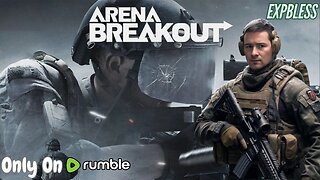 LIVE
LIVE
EXPBLESS
1 hour agoFirst Time Playing Extraction Shooters | *LIVE* Arena BreakOut | #RumbleTakeOver
1,193 watching -
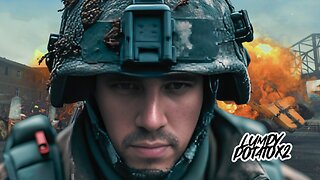 LIVE
LIVE
LumpyPotatoX2
49 minutes agoArena Breakout: Infinite - #RumbleGaming
570 watching -
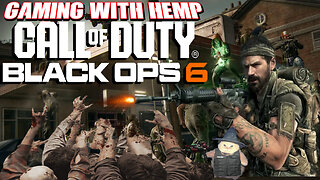 LIVE
LIVE
GamingWithHemp
1 hour agoCall of Duty BO6 Zombies episode #7
420 watching -
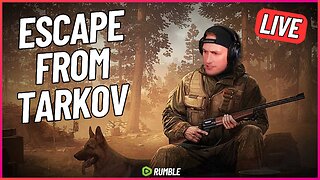 2:43:07
2:43:07
RG_GerkClan
3 hours agoLIVE: Lets Get to 500 FOLLOWS! - Escape From Tarkov - Gerk Clan
1791 -
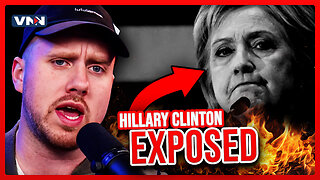 LIVE
LIVE
Vigilant News Network
17 hours agoHillary Clinton EXPOSED In Another Massive Hoax | The Daily Dose
2,660 watching -
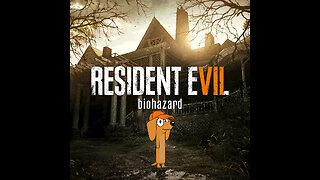 3:13:17
3:13:17
Boxin
4 hours ago(Rumble push to 50 Followers!) (alerts Working...?) Spoopy Month!!!! Resident Evil 7 Biohazard 4
50.3K2 -
 2:26:35
2:26:35
Father Russell
4 hours agoThrone and Liberty | Morning Stream
27.6K1 -
 5:59:12
5:59:12
ColdHe4rted
9 hours agoOverwatch = new tank! Lets go!
21.5K -
 5:19:50
5:19:50
SLS - Street League Skateboarding
8 days ago2024 SLS Tokyo: Women’s and Men’s Knockout Rounds
552K29